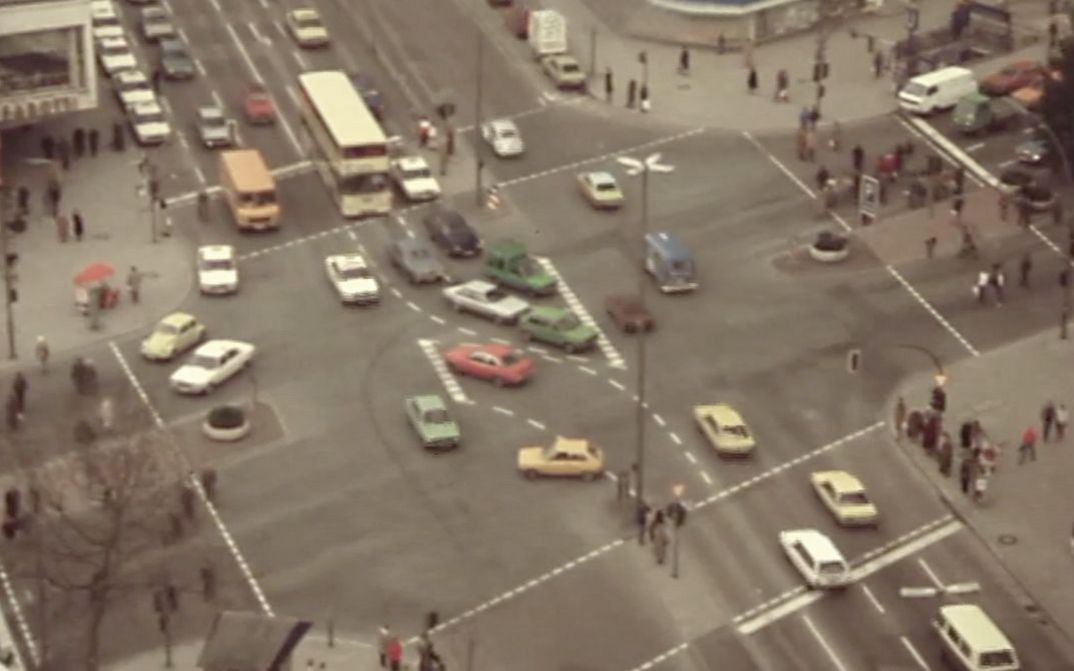Fiktionsbescheinigung Program 3

Sun 20.02.
17:00
Cinema
Arsenal 1
The „Fiktionsbescheinigung“ explores the question of how culture in general and cinema in particular are related to society and racism. It is dedicated to the work of Black directors and directors of colour in Germany and sees itself as an experiment in shared curatorial responsibility that also seeks to shine a spotlight on a chapter of German film production that has been unfairly neglected.
The film selection was put together by curators Enoka Ayemba and Biene Pilavci, supported by Karina Griffith, Jacqueline Nsiah, Can Sungu and the Berlinale Forum selection committee.
Director
Raoul Peck
Federal Republic of Germany / 1985
18 min.
/ 16 mm
/ Original version with English subtitles
Original language
German
In the early 1980s, Haitian filmmaker Raoul Peck’s studied directing at Berlin’s German Film and Television Academy and made MERRY CHRISTMAS DEUTSCHLAND ODER VORLESUNG ZUR GESCHICHTSTHEORIE II as part of his studies, an atmospheric, lucid and politically astute essay in which the director’s signature approach to non-fiction that would flourish further in later works is already on display. Utilizing contradictions and counterpoints, these dense but unhurried 18 minutes pair rephotographed television clips of German parliamentary debates with footage of the city’s drab post-war architecture – at times inserting additional colour by way of solarization and other experimental flourishes – all set to Vivaldi, Miles Davis and nondescript audio snippets about shopping and a desire for world peace. In lieu of a first-person voiceover, Peck inserts ironic dictionary definition intertitles of words like “optimism” and “democracy” alongside selected citations, including Prussian General Clausewitz’s declaration that “Wars of educated people are less gruesome,” a guiding fallacy that Peck rallies against, and has continued to confront in the decades since. (Jesse Cumming)
Director
Hito Steyerl
Germany / 1998
62 min.
/ Original version with English subtitles
Original language
German
The enduring topicality of DIE LEERE MITTE is evident from the very first words spoken: “There are many ways to break through a border. There are many ways to erect new borders.” Hito Steyerl may be referencing the Berlin Wall from the standpoint of 1998, but the idea of the cyclical dismantling and reconstruction of borders still echoes through time, back into the past and forward into the future, within this film and beyond. Following the fall of the Wall, the centre of Berlin stood empty, triggering reflection both on its myriad previous functions and its potential role in the image of a new Germany, with the parallels between the two impossible to overlook. As Steyerl skilfully joins the dots between death strip squatters, the Mendelssohn family, the Haus Vaterland, colonial dictates and acts of resistance against them and a constant stream of protests and parades, the same trends keep transcending history: efforts to keep out foreign workers, construction projects brimming with ideological zeal, the slice and dice of borders, people of colour being harried, ostracised and discriminated against, again and again. Even if the centre is no longer empty, the flow never stops. (James Lattimer)